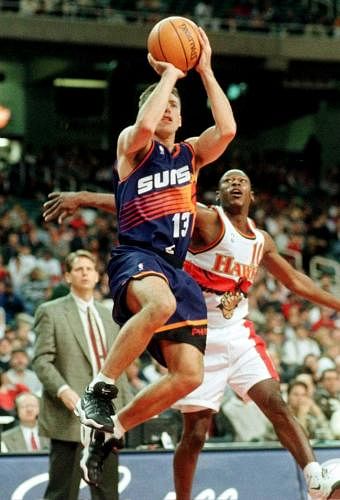
Best of Free Agency: the 1990s
The 1990s was when basketball became exciting. If the 80s was the decade that cemented the NBA in the American imagination, the 90s was the decade the NBA went global. The 80s had Bird-Magic, Celtics-Lakers. The 90s…well, the 90s had some guy named Michael Jordan. Till the recent popularity of European soccer leagues, there was no global brand bigger than brand MJ. Enabled by satellite television and DTH, the NBA caught the imagination of the Asian giants as well as Latin America. You have to look to the 90s to understand how Yao Ming in 2002 landed in Houston, Texas.
In the second part of this series, we examine potentially franchise-altering free agency moves in the 1990s. The parameters remain the same: championships won, overall team success, individual success and intangible team benefits. Although it seems unthinkable now, stars simply didn’t switch teams as often in free agency in the 90s, which is why our last two spots are occupied by role players on contending teams. The blueprint for the business minded free agency chaos of our times was in many ways established by a certain self-proclaimed Superman’s team switch in 1996.
5. Danny Ainge, Phoenix Suns, 1992:
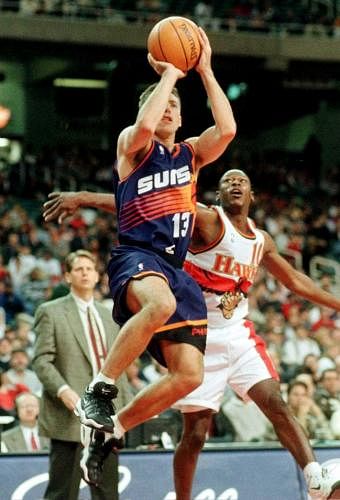
While we know him better today as the brash, outspoken and genius-or-idiot GM of the Boston Celtics, Ainge played in the NBA for fourteen seasons after a three year stint in Major League Baseball. Ainge was a key component in the Celtics’ championship runs in the early 80s (the Tragic Magic days) and by the time he joined the Suns as a free agent in 1992, his best years as a player were behind him. At the age of 33, Ainge scored 11.8 ppg in 27 mpg with 40% 3-pt shooting off the bench for a Suns team led by Charles Barkley that made it to the 1993 NBA Finals. The Suns went 178-66 during Ainge’s tenure with the team and made the Western Conference Semi-finals in consecutive years only to be ousted by eventual champions, the Houston Rockets, both times. Ainge’s hard-nosed, defense first style of play and veteran leadership meant a lot for the Suns, who at that time had a new franchise cornerstone (Barkley) and a new arena.
4. Steve Kerr, Chicago Bulls, 1993 and Ron Harper, Chicago Bulls, 1994:
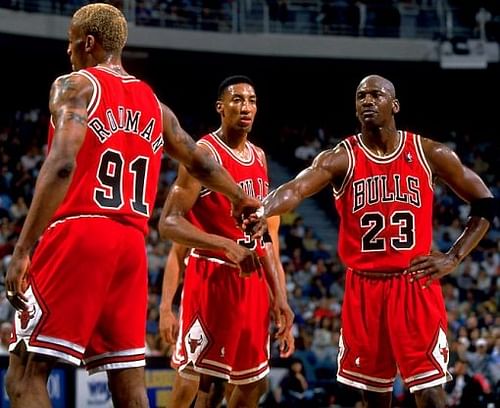
Both Kerr and Harper signed with the Bulls during Jordan’s jaw-dropping, eye-popping initial retirement from the NBA (“My dad wanted me to play Major League Baseball”) which opened up multiple spots and scoring opportunities for a Bulls team now led by Scottie Pippen. Though the Bulls made the playoffs in 93-94 as well as 94-95, it wasn’t till Jordan returned in 1995 did the team truly come together to become a serious contender once again. The result: another 3 peat for the Bulls between 1996-98, with Harper in the starting lineup and Kerr as the first guard off the bench. Harper reinvented himself as a perimeter defensive specialist after spending much of his career as a high flying scorer.
Every championship team needs at least one lights out shooter from beyond the arc; Steve Kerr was “that guy” for the Bulls team that went 72-10 and 69-13 in consecutive regular seasons en route to three titles in succession. Kerr also has in his belt the second best shot in 1990s Finals history (after Jordan’s “flu game” winner) during Game 6 of the ’97 Finals, when Jordan found an open Kerr from beyond the arc for the game and series clincher. In his five seasons with Chicago, Kerr shot 41%, 52%, 51%, 46% and 43% from beyond the three-point line in each respective season. Call it the Jordan effect.
3. Dikembe Mutombo, Atlanta Hawks, 1996:
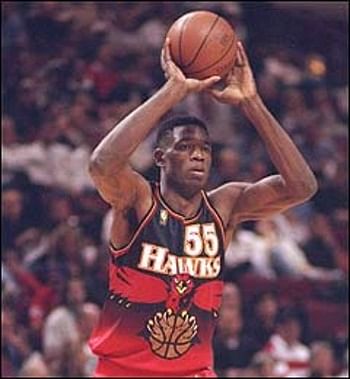
Onto the stars: When you get a chance to sign a top-5 defensive player all time in his prime, you do it. Especially if your franchise is in Atlanta and he wants to play for you (surprise, surprise). Mutombo was the defensive anchor of a Hawks team that had consecutive 50 win seasons and made it to the Eastern conference semifinals twice in the mid to late 90s. He averaged a double-double in every full season with the Hawks (till ’99) and garnered two Defensive Player of the Year titles while with them. Above all, he brought out the finger wag while with the Hawks, the peaceful taunt that epitomized his personality. It’s not coincidence that the Hawks fell out of playoff reckoning when Mutombo was traded to the 76ers in 2000. And oh, Mutombo swatted away all opponents for his Philly team en route to a Finals appearance with Iverson. Just saying.
2. Vlade Divac, Sacramento Kings, 1998:

The two most exciting teams in the early 2000s were the LA Lakers and the Sac-town Kings. For the Kings, Bibby was the bling-bling scorer, Peja the knockdown shooter, Chris Webber the Big Man Every Championship Contender Needs. And then there was Vlade, Peja’s compatriot from Serbia, a slow moving 7 footer weighing 240 pounds. He could score, pass, rebound and block (his career totals put him in the elite 13000 points, 9000 rebounds, 3000 assists and 1500 blocked shots club, one of six members). Vlade’s addition vaulted the Kings from a middling team to perennial playoff contenders and eventual championship contenders. The Kings finished the 2001-02 season as the No. 1 seed posting a regular season record of 62-20.The Lakers-Kings WCF series in 2001-02 is an NBA classic; the Kings-Lakers rivalry being the best thing about basketball to start the decade.
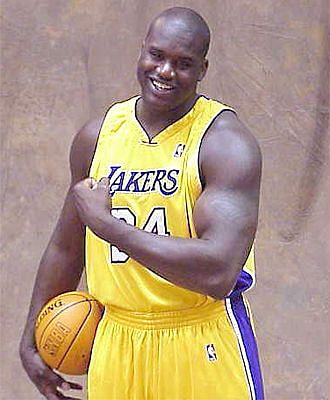
We have at #1 the Big Aristotle, the backboard-breaking 325 pound phenom, NBA MVP, NBA Champion, the greatest entertainer the NBA has ever seen, the most dominant big man the NBA has ever seen, the rapper, the actor, Superman: Shaquille O’ Neal, Los Angeles Lakers, 1996 – the move that made everything possible:
If there ever was an NBA star born for Hollywood, it was Shaq. His move in free agency was not only of enormous consequence for the two franchises (the Magic and the Lakers) but for the brand of basketball and Brand Shaq. He acted in movies, released platinum selling rap albums and formed the centerpiece of one among the most dominant basketball teams ever assembled – the 2000-01 Los Angeles Lakers. Shaq averaged at least 25 points, 10 rebounds and 2 blocks in all but one season with the Lakers. He won an MVP, three Finals MVPs, an All-Star MVP, countless All-NBA first team and All-Star selections. He was the LA Lakers as they won three consecutive titles between 2000-02. At the heart of the Shaq story is some disappointment perhaps, for his was a transcendent talent that was never fully tapped. In his prime, his play was unequalled. Shaq is the paradigm for what every free agent has aspired to do in the 2000s: build a mammoth brand, win titles and be the soul of the NBA.